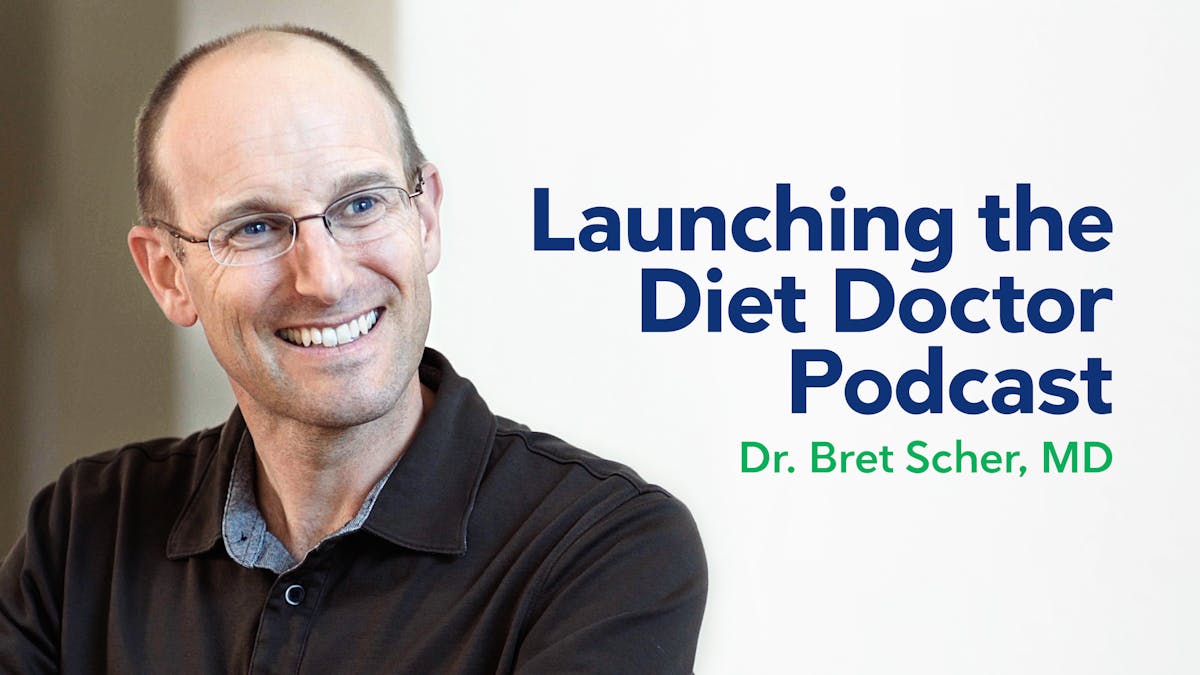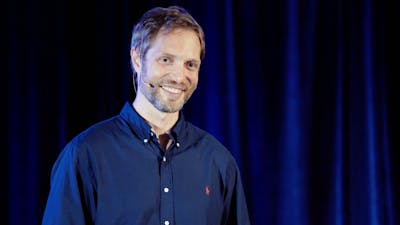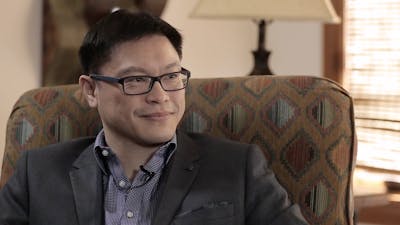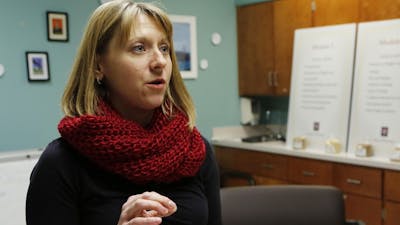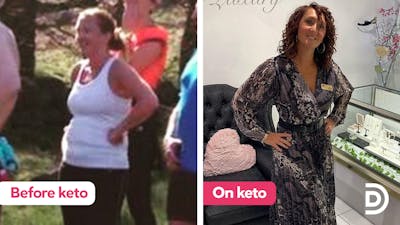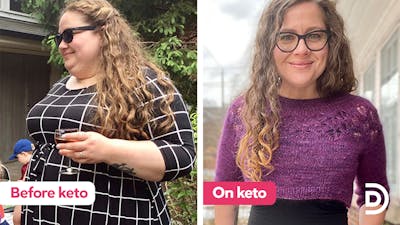Dr. Bret Scher: Evaluating the evidence, challenging medical dogma
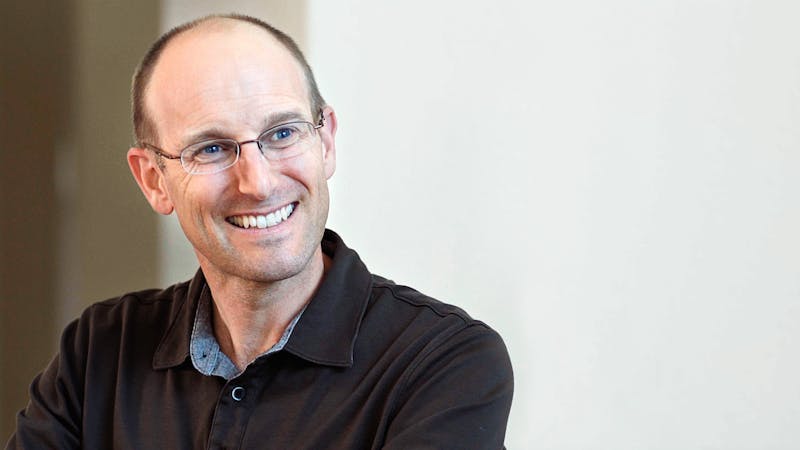
How did he become a prominent advocate for the low-carb way of life? Here is his personal story.
For US cardiologist Dr. Bret Scher, one of the most important qualities a doctor can have is an open mind that can assess and evaluate new evidence, admit past errors, and change previously held beliefs.
He is dismayed by those in the medical profession who cannot or will not do this — which is one of the key factors, he believes, that limits doctors from recommending the low-carb ketogenic way of eating to their patients.
For some doctors, it doesn’t matter how much evidence you show them. They’ll say: ‘I’ve practiced this way for 30 years; I’ve seen 10,000 patients. You cannot convince me any different — I am the doctor!’ Not Scher. For him it is essential that physicians constantly challenge medical dogma and their pre-conceived notions.
“If I am wrong, I want to know it. I want to be able to analyze the data, admit that I was wrong, and change course,” says Dr. Scher, who has practiced as a board-certified cardiologist for more than 20 years in San Diego. He is certified in echocardiology, nuclear cardiology as well as functional medicine, fitness nutrition, personal training and behavior modification.
Back in 2012 he admits he was at first reluctant to believe that a diet low in carbohydrates and higher in fats could be good for patients’ cardiovascular health.
That year Dr. Scher founded Boundless Health, a wellness clinic, and worked alongside personal trainer Dustin Schaffer who touted the benefits of the low-carb ketogenic diet. Dustin urged Dr. Scher to try it on his patients. “And I kept saying, “No, no that doesn’t work, it is not a healthy way to go.'”
Patients’ “amazing results”
A couple of his patients with challenging health issues, however, started doing the diet and to his disbelief, the results “were amazing.” “I was still thinking ‘this can’t be healthy’ but then I started to do all my own research, reading everything I could get my hands on.”
He then tried the diet himself and found even though he had been an athlete — who was at what he thought was a very healthy weight — he still lost pounds, he felt better, his workouts improved and he had more energy. “And I started realizing all my biases and that everything I had been taught, about fat being bad for the heart, was basically false. It was all based on bad science.”That’s when he became the low-carb cardiologist. Dr. Scher in the last four years has written a popular book, has a regular blog and podcast and a busy wellness consulting practice, all of which focus on using the low-carb, ketogenic diet for improved health and prevention of illness.
Dr. Scher joined the Diet Doctor team in the summer of 2018 where he now hosts a regular Diet Doctor podcast, writes medical articles and news posts, and provides medical reviews of the site content. Dr. Andreas Eenfeldt said Diet Doctor is always looking to bring talented, “amazing” people like Dr. Scher on to the Diet Doctor team, but finding the right person to host the podcast was a very important decision for the Diet Doctor site.
Needed: extreme trustworthiness and integrity
“Not only would the person need a great deal of talent for making enjoyable and enlightening interviews, the person would also instantly become a very visible representative of Diet Doctor. That’s a position that requires extreme trustworthiness and integrity. I believe Dr. Scher was and remains the best possible choice,” said Dr. Eenfeldt.
A recent example of that integrity in action is how Dr. Scher responded to feedback around a controversial fourth podcast he did for Diet Doctor: “Fasting for health and longevity.” Here is what happened: In the podcast he interviewed Dr. Joseph Antoun, a US fasting researcher who also happens to be the founder of L-Nutra, a company which makes “fasting mimicking” supplements and products.
Diet Doctor, of course, has a strict no ads, no product promotion, no industry funding rule. Many Diet Doctor listeners felt the podcast crossed a line, giving too little time to the science of fasting and giving too much leeway for Dr. Antoun to promote L-Nutra’s supplements. Dr. Scher received a harsh scolding in the Diet Doctor comments section for letting Dr. Antoun talk on. Some felt the podcast amounted to an “infomercial” for L-Nutra.
“At first I was very surprised by the reaction, then I thought, ‘I better go back and listen to that again’ and then I could completely see where people were coming from. Yup, I dropped the ball.” A day later, Dr. Scher wrote a heartfelt apology to Diet Doctor listeners, promising “I will be an advocate for the science and for information that helps you, not that promotes someone else’s agenda.”
Class act: owning up to errors increases integrity
Rather than harm his reputation or undermine his integrity, that quick, authentic apology did the opposite: it increased his trustworthiness in many people’s eyes.
As one comment noted: “It would have been easy to ignore the feedback and move onto another interview. In making this apology and in explaining his intent and actions, Dr. Scher shows a great deal of integrity.” Said another:”I have a lot of respect for a person who can apologize and help us all learn.” “Class act,” said a third.
Dr. Eenfeldt agrees: “When you’re creating something new – like a new podcast – it’s very understandable to make a few early mistakes. The important thing is to be able to admit a mistake, apologize to people affected by it, learn from it. and do whatever should be done to fix it and prevent it from happening again. I think Dr. Scher did all these things admirably well and fast, showing great character.”
Dr. Scher is actually very glad it all happened. “It was a real learning experience for me. Being able to say that you were wrong, being able to admit it to yourself and admit it to others, is such an important part of life,” he said. “So yeah, I am really glad for it.”
Analogy: medical profession owning past mistakes
In fact, he sees an analogy to the way major figures in the low carb world have been able to assess new evidence and admit that the low fat, calories in/calories out model was wrong.
The fact that major institutions and health organizations — such as the American Heart Association, the American Diabetes Association, the US Government’s Dietary Guidelines — and medical leaders in those organizations so far cannot do this is very disturbing to him.
“What really concerns me is how people are still swearing by poor quality research as being definitive. That is not science, that is akin to religious belief; it is a value that is not open to change and to new evidence. That really bothers me.”
All started with triathalons
From a young age, Dr. Scher has always been interested in science, particularly relating to how the body works, especially towards improving athletic performance.
Born and raised in San Diego, Dr. Scher began competing in triathlons at the young age of 14, one of the youngest competitors in his region in the sport at the time. His father “a kind and generous man” would drive him around at 6am to all the various competitions until he was old enough to drive himself. “He was very supportive, but I think he was very happy when I finally got my driver’s license.”
Dr. Scher, now 46, wanted to be a sports medicine doctor from his teens, but when he got into medical school and was doing his rotation through cardiology he became fascinated with the workings of the heart. “The heart to me is the driver of everything, especially if you are talking about athletic performance.” Learning to read electrocardiograms was like learning a new language — the heart could speak to him.These days, he still works one day a week in an acute care hospital, treating patients with serious heart disease, using all the various cath lab equipment and doing procedures like cardiac catheterizations. “It’s miraculous what cardiologists can do. There is this big rush of adrenaline and excitement. But at the same time there is this frustration, too — did we really have to get to this point? Couldn’t this have been prevented?”
Estimate: majority of hospitalizations could have been prevented
He estimates that 80 % of the patients he sees in hospital with cardiovascular disease have health issues that could have been prevented with a healthier lifestyle, such as not smoking or eating a lower-carb diet.
He is currently in the minority of US cardiologists who recommend a low-carb ketogenic diet for improved heart health. Some cardiologists, on Twitter, even call him irresponsible and crazy and threaten that he will be sued for malpractice. “Other doctors feel so strongly about what they have been taught. It is so frustrating. If they would just open their minds and look at the quality of the evidence they would realize I am not crazy, I am not irresponsible. I am actually helping a lot of people and they could, too, if they were just more open-minded.”
Home life: fostering healthier choices, not dogmatic rules
The father of two young boys, Dr. Scher eats a low-carb ketogenic diet daily and loves how it makes him feel. His wife, he says is a former carbohaolic who has made great strides in reducing her carbohydrate intake, although it’s clear ketosis is not the right path for her. While they are generally a low-carb paleo home, they do not force strict low-carb eating on their sons. “I don’t want food to be a power struggle. We talk about healthier choices. We want them to be empowered to make their own decisions. We just try to educate them rather than dictate to them.”
These days, he is excited by a number of promising developments in the low-carb field, especially all the emerging evidence about the low-carb ketogenic diet’s ability to reverse diabetes. “The evidence is just getting harder and harder to ignore.” He is also encouraged by all the medical professionals attending low-carb conferences, especially the frontline general practitioners in the audience. “For each family doctor there, learning, taking this information back to their practice, the impact on patient care is phenomenal.”Solving the puzzle of lean mass hyper responders
He is also very excited about all the work on low density lipoproteins (LDL) —sometimes called the “bad cholesterol” — and what it may mean for future cardiovascular disease. He is fascinated by the work of software engineer Dave Feldman, of The Cholesterol Code, and his work around lean mass hyper responders, that small group of healthy people who on a low-carb high fat diet see their LDL numbers rise very high.
These hyper responders all have a similar profile: their high density lipoprotein (HDL) is high, their triglycerides are low, their inflammatory markers are low, they feel great, but their LDL is very high. “Is that problem? I truly think in a lot of people it is not going to be. If high LDL were a problem these people should be dropping dead of heart attacks left and right. But they are not. However, we need the science to prove that,” he says.
While Dr. Scher does not believe that high LDL levels in healthy lean mass hyper responders is a health issue, he would absolutely change his mind, immediately, if good evidence proved otherwise. “That is the whole point. If it is harmful, we need to know as soon as possible and change course!”
At the November 2018 Low Carb USA conference in San Francisco, he and Dave Feldman could often be seen in a corner, head-to-head, chatting intensely. “We were actually talking about how we could solve this issues and do a definitive study on LDL in the ketogenic diet. We talk about that a lot.”
“Truly an extraordinary cardiologist”
Dave Feldman says he loves talking to Dr. Scher about lipid issues. “Bret Scher is a truly an extraordinary cardiologist. He’s exploring the very essence of cholesterol and the system of lipoproteins that manage it in the bloodstream. I especially enjoy his many-cutting edge insights on low carb lipid profiles, risk management, and how fatty acids help to fuel us all.”
At this stage in his professional life, Dr. Scher feels true gratitude for the work he is doing and the role he is now playing at Diet Doctor. In fact, he ends each of his blog posts with a sincere, “Thank you for reading ” He really means it.
“I am really grateful to have people who are interested in what I have to say. I always hope that I can present information in a way that is helpful to them.”
More in the series
Earlier
The story of Diet Doctor – more about the beginnings of the Diet Doctor company
Interview with Bret
